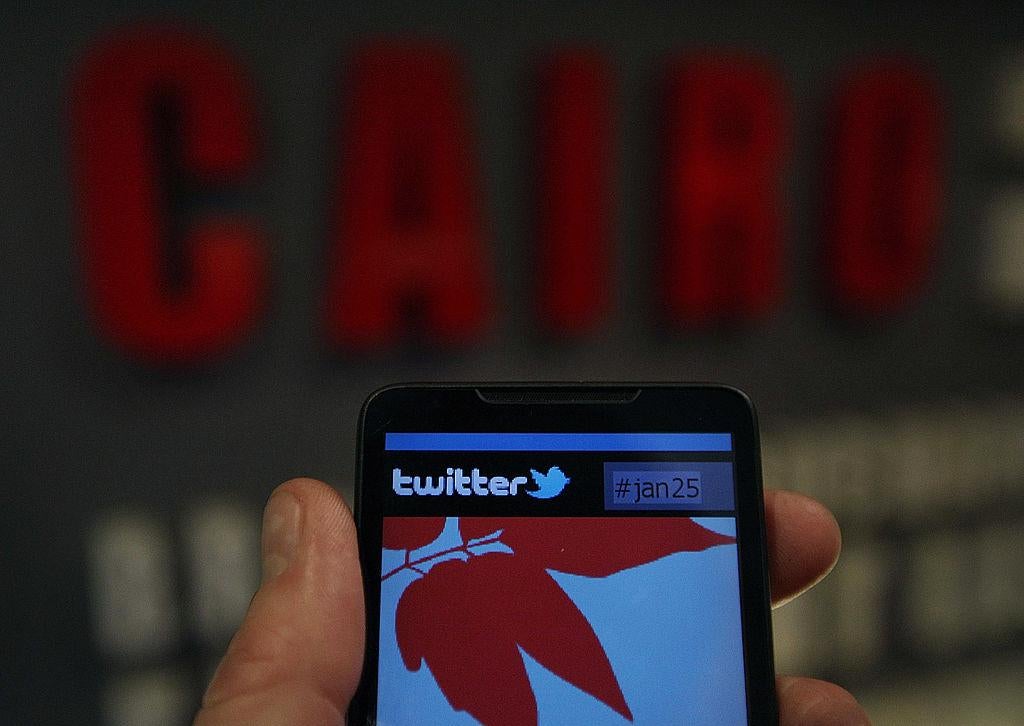Egypt could start ‘charging people to use Facebook’ as part of restrictive anti-terror bill
Parliamentary committees examining proposal for stricter controls on social media use in name of counter-terrorism efforts

Your support helps us to tell the story
From reproductive rights to climate change to Big Tech, The Independent is on the ground when the story is developing. Whether it's investigating the financials of Elon Musk's pro-Trump PAC or producing our latest documentary, 'The A Word', which shines a light on the American women fighting for reproductive rights, we know how important it is to parse out the facts from the messaging.
At such a critical moment in US history, we need reporters on the ground. Your donation allows us to keep sending journalists to speak to both sides of the story.
The Independent is trusted by Americans across the entire political spectrum. And unlike many other quality news outlets, we choose not to lock Americans out of our reporting and analysis with paywalls. We believe quality journalism should be available to everyone, paid for by those who can afford it.
Your support makes all the difference.Egyptian politicians are considering passing legislation which would impose unprecedented controls over social media platforms in an effort to crack down on both extremism and criticism of President Abdel Fattah al-Sisi’s government.
Two separate bills submitted to parliament last month include measures such as linking accounts to users’ national identification numbers to create a user database, charging registration fees when signing up for accounts, and establishing an Egypt-only Facebook-style platform.
The proposals have been met with widespread criticism by the public and civil rights activists, who have pointed out that the government has no control over international social media companies, that extensive monitoring of social media use is an invasion of citizens’ privacy, and that lawbreakers will still find other ways to communicate even if the restrictions are imposed.
“People around the world have different cultures, and their freedom varies depending on their ability to bear responsibilities. A country like Egypt with a high illiteracy rate cannot be put on par with the US and Europe,” Riyad Abdul Sattar, one of the politicians who sponsored the bills, told al-Monitor.
While Egypt, like many other countries, already tracks IP addresses suspected of terrorism links, the bill is necessary for national security reasons, he said.
The country has seen intermittent unrest since President Mohamed Morsi was overthrown in the 2011 revolution. Egypt's security forces and religious minorities have become the frequent attack of Sunni extremists such as Isis, based in the Sinai peninsula.
The proposed law would also protect women from abuse when pictures and videos of them are spread online, he added.
If Mr Abdul Satter’s bill passes into law those who fail to obtain a ‘social media licence’ for their chosen sites within six months will be fined 5,000 Egyptian pounds (£213). Repeat offenders could face six months in prison.
Another bill proposed by parliamentarian Mohammad Komi would create an Egypt-only social networking site. Users would have to sign up using their national ID number, curbing fake or abusive accounts, and the country could stand to make profit through the initiative through advertising, he argued.
Mr Abdul Satter’s bill is currently under consideration by the relevant parliamentary committees, which will decide if it goes before a vote.
Subscribe to Independent Premium to bookmark this article
Want to bookmark your favourite articles and stories to read or reference later? Start your Independent Premium subscription today.
Join our commenting forum
Join thought-provoking conversations, follow other Independent readers and see their replies
Comments